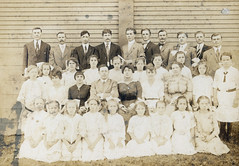
There is a benefit to training your child to objectively look upon the skills of his talent as separate components that can be individually identified and developed. If for example your child has an interest in bladesmithing, one of the skills that is useful to commercial speed is the ability to weld layers of raw steel for prep work. The mistake would be to sign up your child into your local and traditional 2-year long welding program where ALL the welding skills are taught. That makes it easy to explain to other parents where your child is spending his time, but your child would lose valuable time on his talent plan. Instead, because you have identified the specific sub-skills for the talent, you can pay an expert welder to teach your child on just those few narrow welding techniques in a matter of days.


































